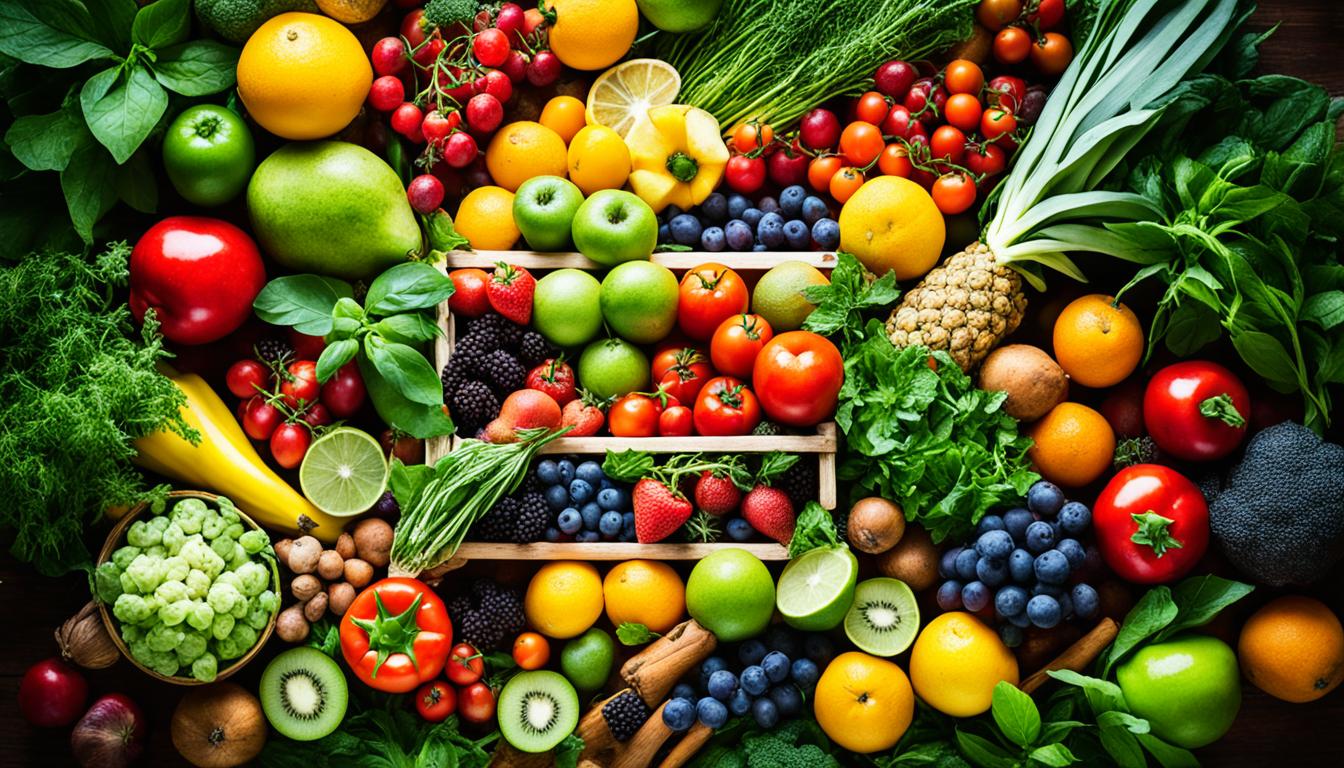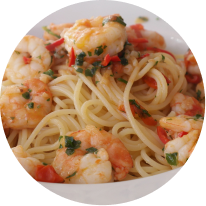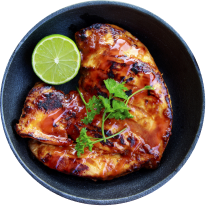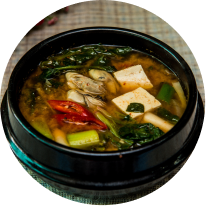In a world where convenience often trumps quality, the search for authentic ingredients has become a revelatory journey for many food enthusiasts. The growing interest in authentic ingredients reflects a deep-rooted desire to experience the true flavors and quality of food. These organic produce, natural flavors, and farm-fresh offerings are more than just ingredients – they’re the building blocks of culinary masterpieces that transport our senses and challenge our preconceptions about what food can be.
But what exactly defines “authenticity” in the culinary world, and whose perspective truly matters? As we embark on this exploration, prepare to be captivated by the non-GMO, sustainably sourced, and whole foods that are redefining the way we approach the kitchen and the dining table. Unlock the secrets of local ingredients and clean labels that elevate even the simplest of dishes into extraordinary experiences.
Are you ready to discover the power of authentic ingredients and how they can transform your culinary journey? Dive in and let your taste buds be the guide as we uncover the fascinating world of authentic cuisine.
Key Takeaways
- Authentic ingredients are associated with organic, locally-sourced, and minimally processed produce that brings out the natural essence of dishes.
- Incorporating authentic ingredients can elevate home-cooked and professional meals, unlocking vibrant flavors and textures.
- The growing interest in authentic ingredients reflects a desire among consumers to experience the true quality and diversity of global cuisines.
- Authentic ingredients are more than just ingredients – they are the building blocks of culinary masterpieces that transport our senses.
- Exploring the significance of authentic ingredients can challenge our preconceptions about food and redefine the culinary landscape.
Redefining “Authenticity” in the Culinary World
The concept of “authenticity” in the culinary world has become increasingly complex and problematic. As the co-founders of the Asian food brand Omsom point out, the term “authentic” can be restrictive, often placing unrealistic expectations on chefs of color and their authentic cuisines. The power to define authenticity has largely rested in the hands of Western consumers, who may filter their opinions through nostalgia or a colonial lens.
Recognizing the need to challenge these traditional notions, culinary experts are reexamining the nuances of culinary diversity and the evolving nature of traditional techniques. This shift in perspective encourages a more inclusive understanding of authentic cuisines, one that allows chefs the creative freedom to innovate while honoring their cultural roots.
The Problematic Nature of Authenticity
The concept of authenticity in the culinary world is often fraught with complex issues, such as cultural appropriation. Dishes that were once considered “authentic” may now be subject to scrutiny, as chefs and food enthusiasts grapple with the implications of borrowing or adapting traditional recipes without proper acknowledgment or respect for their origins.
Furthermore, the notion of authenticity can be highly subjective, influenced by personal experiences, cultural biases, and societal perceptions. This raises the question: Whose Perspective Matters?
Whose Perspective Matters?
- The dominance of Western perspectives in defining authenticity has often marginalized the voices of diverse culinary communities.
- Chefs of color and those from non-Western backgrounds are increasingly challenging the traditional narratives, asserting their right to reinterpret and innovate within their authentic cuisines.
- Embracing the evolutionary nature of traditional dishes allows for a more nuanced understanding of culinary diversity and the role of innovative cooking in preserving cultural heritage.
By recognizing the complex and shifting nature of authenticity, the culinary world can move towards a more inclusive and empowering celebration of diverse authentic cuisines and the talented chefs who bring them to life.
“The term ‘authentic’ can be restrictive, often placing unrealistic expectations on chefs of color and their cuisines.”
– Co-founders of Omsom, an Asian food brand
Embracing Creativity and Innovation
In the ever-evolving world of culinary arts, the notion of authenticity has become a topic of much debate. Rather than clinging to rigid definitions, forward-thinking chefs and food brands are embracing the power of culinary creativity and innovation to redefine what it means to be “authentic.” By drawing inspiration from global culinary traditions while incorporating modern techniques and ingredients, these culinary pioneers are pushing the boundaries of conventional flavors and pushing the envelope of fusion cuisine and experimental cooking.
The journey of flavor exploration has allowed these innovators to uncover new and exciting culinary evolutions, blending the best of the past with the promise of the future. From reinventing traditional dishes to crafting entirely new gastronomic experiences, these chefs and food brands are redefining what it means to be authentic in the 21st century kitchen.
“Authenticity is not about rigid adherence to the past, but rather a willingness to embrace the present and shape the future. The true essence of a cuisine lies in its ability to evolve and adapt, to incorporate new ideas and to surprise the palate.”
One such example is Chef Sophia Hernandez, who has gained acclaim for her unique take on Mexican cuisine. Fusing traditional techniques with unexpected ingredients and modern plating, Hernandez’s dishes challenge the notion of what constitutes “authentic” Mexican food. By honoring the rich culinary heritage of her homeland while simultaneously pushing the boundaries of flavor and presentation, she has created a dining experience that is both familiar and entirely novel.
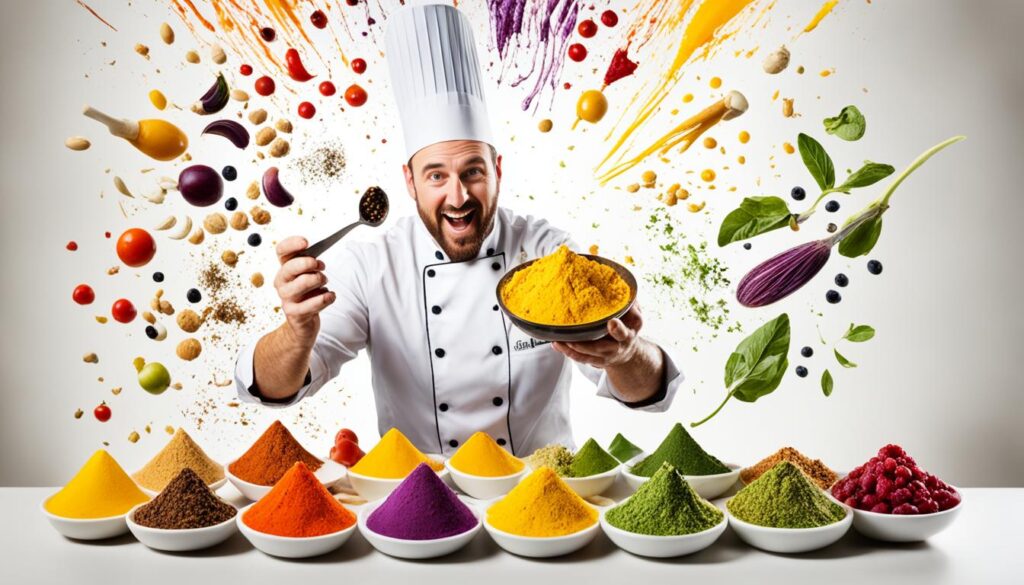
Similarly, the team behind the popular food brand “Spice Fusion” has made a name for themselves by celebrating the diversity of global flavors. Through their innovative product line, they seamlessly blend traditional spice blends from around the world, creating unique flavor profiles that captivate the senses and inspire home cooks to explore new culinary frontiers.
By embracing the spirit of culinary creativity and innovation, these chefs and food brands are redefining the very concept of authenticity in the culinary world. Their willingness to honor the past while embracing the future has not only delighted the palates of their customers but has also paved the way for a more dynamic and inclusive culinary landscape.
The Journey of Authentic Ingredients
The culinary world is a tapestry of rich histories and global connections, woven together by the journeys of authentic ingredients. From the introduction of tomatoes to Italian cuisine to the influence of Middle Eastern spices on Thai curries, the origins and migrations of key ingredients have shaped the flavors and dishes we now consider “traditional.” This section delves into the fascinating histories and provenance of these culinary treasures, shedding light on the dynamic and interconnected nature of global food traditions.
Exploring the Origins of Global Cuisines
Authentic ingredients often have captivating stories to tell. Take, for example, the humble tomato – a staple in Italian cooking today, yet it was once considered a poisonous “love apple” when first introduced from the Americas. Similarly, the fragrant spices that define the rich curries of Thailand have their roots in the ancient trade routes of the Middle East, carried by merchants and migrants over centuries. These global culinary migrations have not only enriched local cuisines but also created a tapestry of flavors that transcends geographical boundaries.
The Evolution of Traditional Dishes
As ingredients have traversed the world, traditional dishes have also undergone their own transformations. Local adaptations and influences have shaped the way these dishes are prepared and presented, while still maintaining their cultural essence. From the way Italian pizza evolved to incorporate local ingredients like mozzarella cheese, to the adaptation of Middle Eastern spices in Thai curries, these culinary evolutions reflect the dynamic and resilient nature of global food traditions.
Whether tracing the origins of key ingredients or exploring the evolution of beloved dishes, the journey of authentic ingredients is a captivating tale of culinary history, ingredient provenance, global food traditions, culinary migrations, and culinary adaptation. By understanding these stories, we can gain a deeper appreciation for the richness and diversity of the world’s culinary landscape.
“Authentic cuisine is not just about the food on the plate, but the stories and traditions behind it.” – Chef Noel Cunanan
Authentic Ingredients: A Multifaceted Concept
The concept of authentic ingredients is multifaceted, encompassing not only the provenance and quality of the ingredients themselves but also the cultural context and personal connections they hold. These ingredients play a vital role in preserving food traditions and celebrating cultural diversity, while also evoking nostalgic memories and fostering a deeper appreciation for the culinary arts.
Authentic ingredients, such as the traditional Italian pinsa crust crafted by Pinsa Romana America, are not just about taste and texture; they embody the rich history and traditions of a cuisine. As Chef Carlo Pedone, the owner of Pinsa Romana America, passionately shares, these authentic dishes bring people together at the dinner table, fostering a sense of community and shared experience.
Beyond the realm of traditional cuisines, the concept of culinary authenticity extends to the emerging plant-based food trend. Ingredients like tofu, jackfruit, and TVP are not only nutritious and sustainable, but they also offer a thoughtful and inclusive approach for the foodservice industry to accommodate consumers with diverse dietary needs. As the industry evolves, brands like Vegbloc are introducing new plant-based ingredients that focus on healthy protein delivery without mimicking meat, reflecting a consumer shift towards healthier and more sustainable options.




